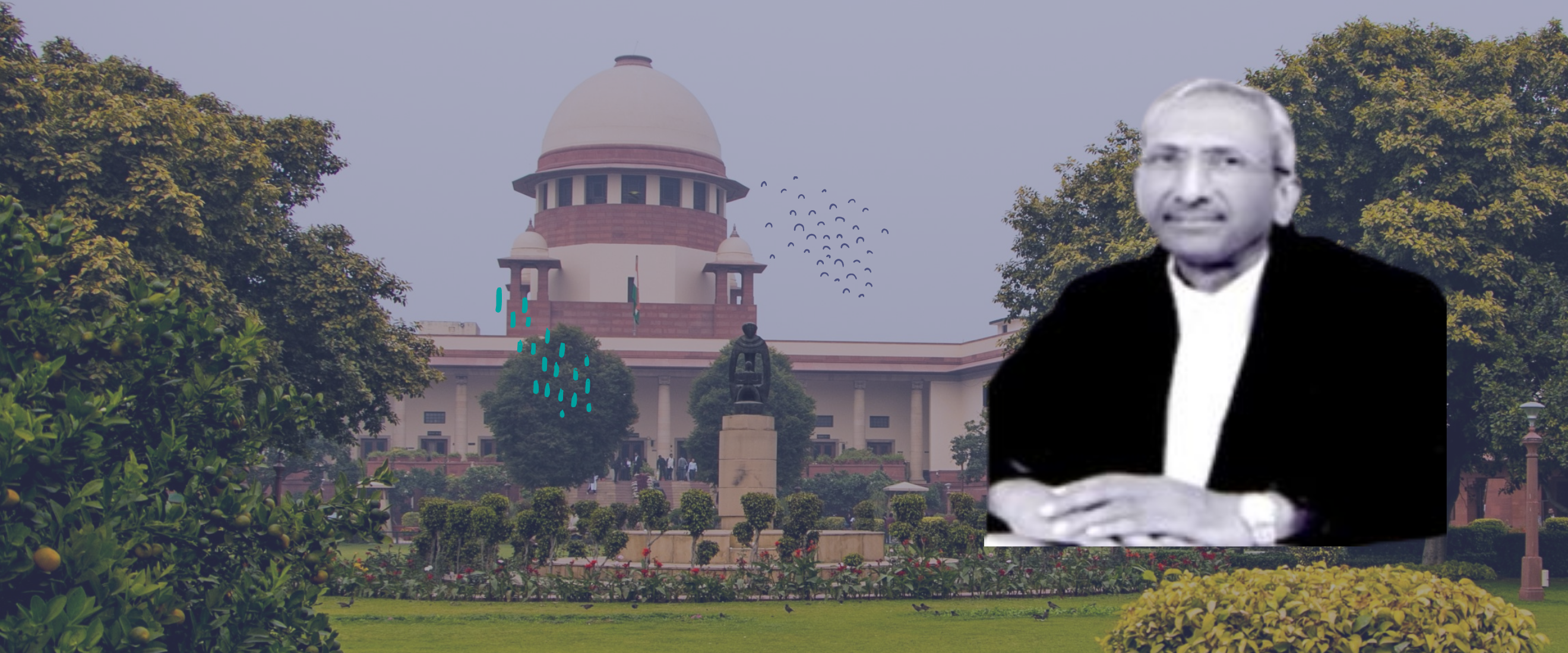Analysis
Justice Goel – A Judicial Portrait
Justice Goel's tenure was marked by some key judgments in the field of criminal law, including the much-criticized Kashinath Mahajan case

Justice A.K. Goel retired from the Supreme Court on July 6th 2018. Though his retirement has not received the same attention as that of Justice Chelameswar, his 4 years tenure was marked by some key judgments in the field of criminal law.
The most discussed judgment of Justice Goel was Dr. Subhash Kashinath Mahahjan v. The State of Maharashtra & Anr. which diluted the Atrocities Act, 1989 in the context of anticipatory bail. This judgment has been criticized and has sparked protests across India. This case read down the exclusion of anticipatory bail for those accused of the offenses under the Atrocities Act. Justice Goel was of the opinion that only in those cases where a prima facie case is made out, the provision of denial of anticipatory bail can apply. He held that in absence of this safeguard, it would be difficult for public officers to perform their official duties.
Justice Goel held that for arrests of public officers it was necessary to seek the approval of higher officials – this measure would prevent any abuse of law. The court did not refer to any data to conclude that the law was being misused – the court opened itself to relying on heresy to arrive at its decisions. Justice Goel’s stance in this case was grounded on ‘liberty’ of the citizen. He had also briefly alluded to the doctrine of proportionality in support of his judgment.
Another 2017 judgment Rajesh Sharma v State of Uttar Pradesh, which garnered public attention dealt with the abuse of the provision of cruelty under Section 498A of the Indian Penal Code, 1860. Under this provision, there has been a tendency to arrest the entire family on the ground of abusing the married woman. The arrests were often based on dubious grounds as recorded in the judgments of the court, parliamentary reports and 243rd report of the law commission.
Recognizing the gravity of the situations certain safeguards were issued. These included family welfare committees in every district and exclusion of personal appearance of all family members.
Though the reasoning adopted by Justice Goel leaves much to be desired, it is heartening that Justice Goel seems to have avoided the malaise of verbosity that afflicts the judgments of the Apex Court.
Justice Goel sitting in a division bench with Justice U.U. Lalit gave another judgment in 2017 which had the effect of terminating the employment of 1.74 lakh contractual teachers in UP. These contractual teachers were earlier regularised as Assistant Teachers in government schools even though they did not meet the minimum statutory criteria of passing Teachers Eligibility Test (TET). In this case of State of Uttar Pradesh v Anand Kumar Yadav, Rule 16 A and 14 of UP Right to Education Act (RTE) Rules were challenged which relaxed the minimum educational qualification of passing the Teachers Eligibility Test, statutory criteria under Section 23(1) under Right to Education Act.
Justice A.K. Goel held that the Right to Education under Article 21 A means the ‘right to quality education’ which was being compromised by appointment of Siksha Mitras in school. Hence, he found the appointment to be in violation of fundamental right to ‘quality’ education under Article 21 A. His reasoning for non-regularisation was based on a clear precedent of a constitutional bench in Uma Devi which had laid down criteria for regularisation – the post must be regular post; the candidates must possess the minimum qualifications. On both these grounds, SikshaMitras’ (Contractual teachers) employment could not be regularised.
This is a judgment that must be appreciated for a clear assertion that the Right to Education means Right to Quality Education and no trade-off can be made for purpose of a wider reach. But this judgment has a huge policy impact as the employment of over 7 to 8 lakhs Sikha Mitras have been terminated across States. Maybe the grant of compensation for those Siksha Mitras who have spent over 10-12 years teaching in the schools in the hope of being regularised would have truly reflected Supreme Court as a ‘court of justice’ rather than a ‘court of law’
The judgments have had a controversial afterlife:- The Centre and various States have filed a review petition against the Kashinath judgment; the Supreme Court has agreed to revisit the correctness of Rajesh Kumar case and various States are planning to bring an Ordinance to undo the effect of the court judgment in Anand Kumar Yadav Case.
Justice Goel will be taking over as the Chairman of the National Green Tribunal. The timing of his appointment has raised many eyebrows regarding the propriety of judges taking up plum appointments post-retirement. While the concern has some validity, what is of more relevance is Justice Goel’s lack of a distinguished track record in the field of environmental law.